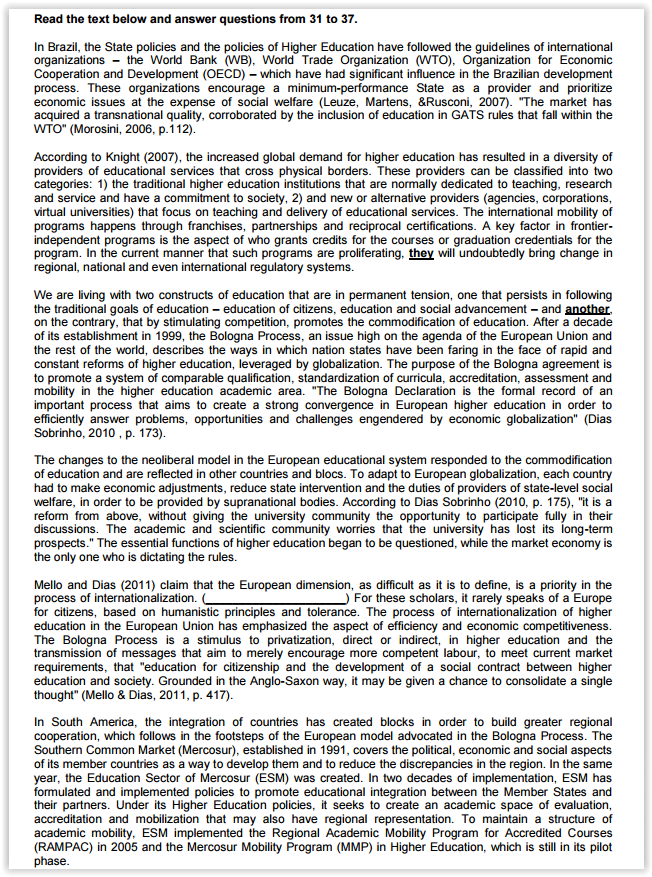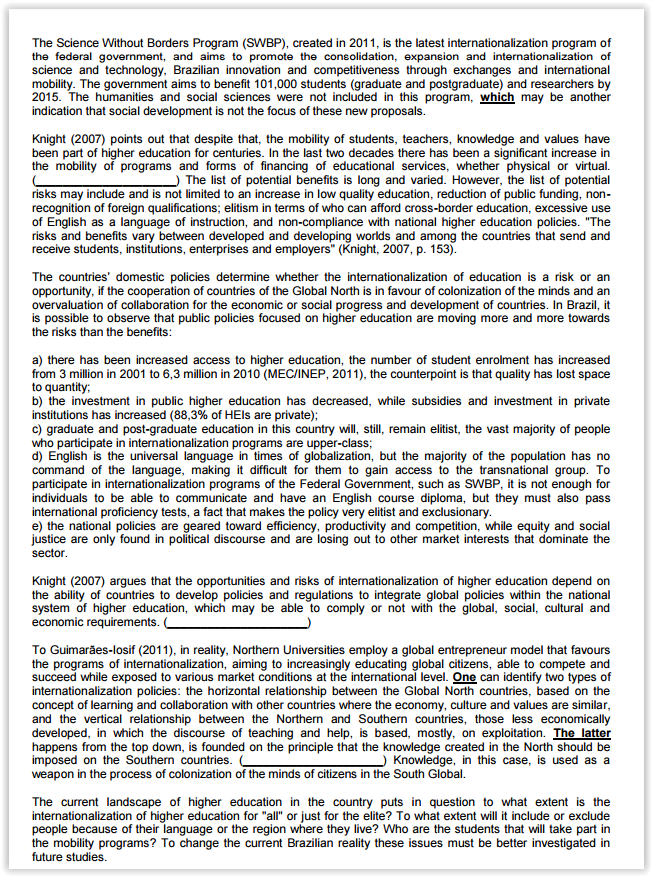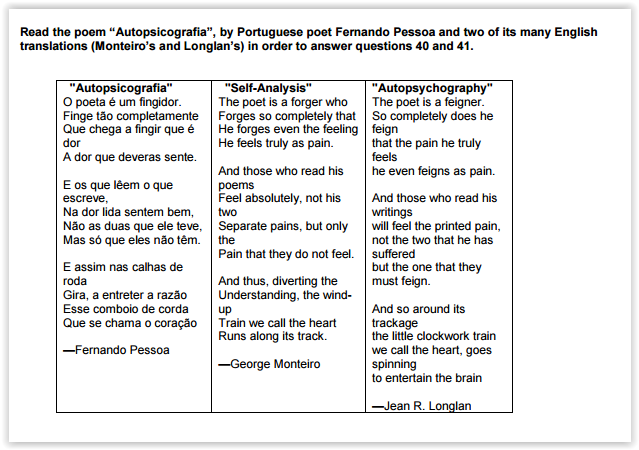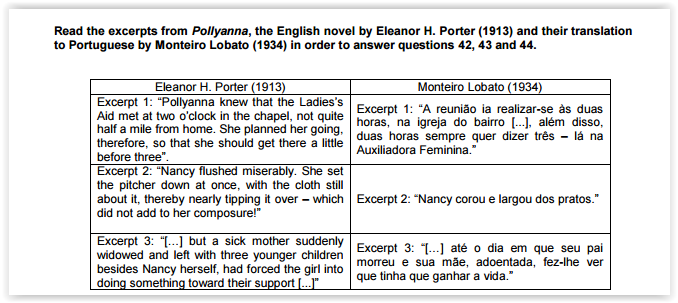The statements in the alternatives below paraphrase some of the ideas from the text, EXCEPT in:
The statement below that most closely reflects the view of literary translation, as discussed in contemporary Translation Studies, is:
Recently, expressions such as the italicized ones below spread via social media, blogs and
emails. They are called “memes”, a term used to refer to catchphrases, concepts, images, songs, quotes that
spread, often as mimicry, from person to person via the Internet.
“In Brazilian Portuguese, you don’t say ‘stop’, you say ‘amiga, para que ta feio’ and I think that’s
beautiful!”
“In Brazilian Portuguese, you don’t say ‘I hate you’, you say, ‘você não tinha nem que ta aqui, linda’ and
I think that’s beautiful”
“In Brazilian Portuguese, you don’t say ‘I love you’, you say, ‘eu tb assisto essa serie!!!’ and I think that’s
beautiful.”
From the perspective of Translation Studies, it is INCORRECT to state that:
The words reader, suffer, risks and considered in bold type in the text can be replaced with little or subtle change in meaning by, respectively:
The comment below that presents a contradictory view to the main argument put forward in the text is:
The statements in the alternatives below describe the differences between translation (here, taken as the rendition of written texts) and interpreting, EXCEPT in:
If another version of Excerpt 3 was to be written, the LEAST accurate translation would be: “[…] but a sick mother suddenly widowed and left with three younger children besides Nancy herself, had forced the girl into doing something toward their support [...]”
In the dialogue below, the underlined words that can be replaced by HAVE GOT or HAS
GOT are in lines:
The alternative providing the clauses that can respectively be used to best complete the
sentences below is:
She is thought to have left ____________________.
She was made to leave ____________________.
Her boss let her leave ____________________.
Have her report to me ____________________.
I had her reported ____________________.
I had her report to me ____________________.
The sentences in the alternatives below are correct, EXCEPT in:
The statement that best summarizes the main point being made in the text is:
The words underlined and boldtyped in the text (they / another / which / one / the latter) have the following referents, respectively:
The only alternative which DOES NOT describe a theoretical component in interpreter and translation training, according to Gile (1995), is:
The sentences in the alternatives below are written in Standard English, EXCEPT in:







